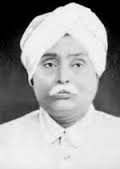₹400








‘The Arya Samaj’ is a book by Lala Lajpat Rai, aimed to state the position of Arya Samaj in the words of its leaders, who are the best exponents of its doctrine and its views.
‘The Arya Samaj is undoubtedly a potent spiritual ferment in Punjab, combining what may be called a Protestant reformation of the secular abuses and legendary accretions of orthodox Hinduism with a Puritan simplification of life and a Roundhead insistence on the development of Indian intellectual life and thought. Of this movement and in this social service, Mr. Lajpat Rai has been long a leader. He adds a new service to us all by bringing its history, its aims and its achievement to the notice of the ever-growing English-reading public, not only in the United Kingdom and America, but also in India and Japan.’
(from Introduction of the book)
______________________________________________________________________________________________________________________________________________________________________________________________________________________________________________________________________________________________________________________________________________
Contents
Preface — Pg. 7
Introduction — Pg. 13
Part I: Swami Dayananda Saraswati
1. Early Life — Pg. 23
2. Fighting for Truth — Pg. 44
3. Founding of the Arya Samaj and Death — Pg. 59
4. The Teachings of Dayananda — Pg. 69
5. Dayananda’s Translation of the Vedas — Pg. 88
PART II: The Arya Samaj
1. Religious Teachings — Pg. 95
2. Social Ideals and Aims — Pg. 120
3. Organization of the Arya Samaj — Pg. 131
4. The Arya Samaj and Politics — Pg. 135
5. The Educational Propaganda — Pg. 152
6. Philanthropic Activities — Pg. 176
7. Shuddhi Work of the Arya Samaj — Pg. 183
PART III: The Arya Samaj — Pg. (continued)
1. Religious Ideals and Aims — Pg. 195
2. Conclusion — Pg. 212
Bibliography — Pg. 228

Lala Lajpat Rai , (28 January 1865 – 17 November 1928) was a Punjabi author and politician who is chiefly remembered as a leader in the Indian Independence movement. He was popularly known as Punjab Kesari. He was part of the Lal Bal Pal trio He was also associated with activities of Punjab National Bank and Lakshmi Insurance Company in their early stages. He sustained serious injuries by the police when leading a non-violent protest against the Simon Commission and died less than three weeks later. His death anniversary (17 November) is one of several days celebrated as Martyrs' Day in India.